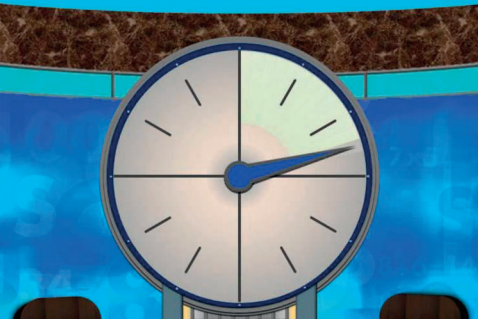February 2021
Regwana Uddin explains why it is vitally important that you keep an eye on the clock when you’re sitting that important exam.
Revision for me has to be the most exciting time. During this period students can learn to apply their knowledge to exam questions, but most importantly they gain exam technique on how to make sure they finish within the allocated time limit.
Students regularly ask for advice on how they should spread their precious moments. Three hours is long and sufficient, but it requires stamina which students do not actually appreciate while they’re in the revision phase.
Time waits for no one
There is nothing new about the time constraints; candidates are expected to complete all necessary questions in the exam and I get a large number of students emailing me that they fought a heavy battle with time. If you’re struggling to beat the clock, then planning your attack before you enter the exam room is key.
At least a week before the exam block out four hours and aim to complete a full mock – but be honest with the time you are spending.
If you do not get a feel for your performance before the real thing then what guarantee is there that you can finish the exam and show the examiner what you are made of? Booking yourself for an ‘exam rehearsals day’ is a wonderful opportunity to force you to do things within X minutes.
Time is money marks
For a skills level paper you have three hours and 100 marks up for grabs, which is equivalent to 1.8 minutes per mark or 18 minutes per 10 marks. Regularly checking the clock is important. I like to manage the passage of time in multiples of five, as this allows me to confirm if I have spent too long on a question or if I should decide that it is time to move on.
Let’s be honest, just before you press ‘start’ you are ready, pumping with adrenaline, wide awake and ready to set off, but as the minutes slip away you will realise your mental performance is deteriorating (and you get a little hungry, but don’t ask me the science behind that) and you’re desperately trying to reach the end. This is inevitable, it will happen, but having one eye on the clock is crucial.
Most candidates are confident that they can type faster than they write so you can save many minutes by doing majority of your workings/written elements in the constructed workspace (and the scratch-pad).
In the first 5 – 10 minutes skim through all questions and ‘flag’ the exercises you believe to play on your strength, and jot down how much time you will be spending for that particular question. If you get those out of the way you will feel pleasantly surprised at how many marks you have accumulated. This will give you the boost you need to chug through the more testing questions.
Lost time is never found again
It’s tempting to want to spend five more minutes on a question that you’re flying through, but you must be strict with yourself as an extra five minutes here means you’ll have five minutes less on your final question (which may be absorbed with effortless marks).
Remember, this exam is your chance to show the examiner what you’re made of, but being well prepared with a lack of exam technique will not impress the examiners at all. As my favourite tutor, Albus Dumbledore, once said: “Mysterious thing, time. Powerful, and when meddled with, dangerous.”
• Regwana Uddin is an ACCA tutor at LSBF. She was shortlisted for PQ Lecturer of the Year in 2020




